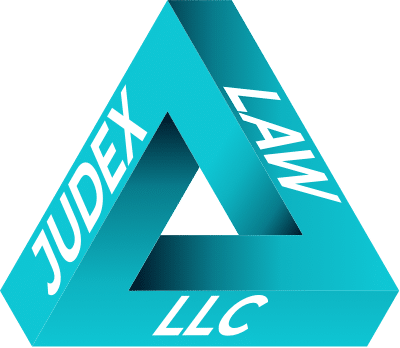As a financial advisor or securities firm, you are likely well aware of the monumental rule changes that the Financial Industry Regulatory Authority (FINRA) recently adopted. The Securities and Exchange Commission (SEC) approved FINRA’s proposed amendments, and all of these rules went into effect on October 16, 2023. Some of the most significant changes involve revisions to FINRA Rules 12800 of the Code of Arbitration Procedure for Customer Disputes and Rule 13805 of the Code of Arbitration Procedure for Industry Disputes as they relate to the expungement of customer dispute information. Although FINRA is celebrating these amendments as further protections for customers, professionals in the financial industry are justifiably concerned about how these restrictions will make it much more difficult to have baseless or downright false customer dispute information expunged from the Central Registration Depository (CRD) and BrokerCheck. If you are confused about how these revised rules could affect your ability to obtain a successful expungement request of erroneous customer dispute information, you are not alone. Let’s take a look at some of the most frequently asked questions that financial advisors have about FINRA’s amendments to the expungement request process. Additionally, it’s important to understand that enlisting the guidance and support of a knowledgeable and experienced securities law attorney is the best way to maximize your chances of obtaining your desired outcome.
What Kinds of Information May Be Expunged?
Under FINRA Rule 2080, customer dispute information may be expunged from the CRD. However, FINRA’s mission is to safeguard the public interest from member firms or individual financial advisors acting in bad faith. Unfortunately, this means that FINRA does not investigate the basis or validity of customer dispute information before it appears on the advisor’s CRD record or BrokerCheck profile. Even misleading, exaggerated, or downright false information can appear on your profile, causing significant harm to your professional reputation and employment prospects.
How Does FINRA Decide Whether to Grant Expungement Relief?
FINRA maintains that it wishes to protect the public’s best interests as much as possible. To this end, FINRA has adopted very narrow grounds for granting expungement relief for individual advisors. FINRA will only grant expungement relief in three specific circumstances: (1) The claim, allegation, or information is factually impossible or clearly erroneous; (2) The associated person was not involved in the alleged investment-related sales practice violation, forgery, theft, misappropriation or conversion of funds; or (3) The claim, allegation, or information is false. Once the three-person panel of randomly selected arbitrators unanimously decides to award expungement relief, FINRA must receive a court order that directs the expungement of the information.
How Does the Arbitration Panel Work?
Under FINRA’s enhanced expungement process, a Special Arbitrator Roster has been implemented to oversee these matters. Essentially, each straight-in request must go before a panel of three experienced public arbitrators who have received additional expungement training. The revised rules have established several guidelines for how straight-in requests should be addressed and resolved. First, a panel of three arbitrators will be randomly selected from the Special Arbitrator Roster to decide the expungement request. The parties involved in the arbitration are prohibited from agreeing to fewer than three arbitrators to oversee the expungement request matter. Additionally, the parties are not permitted to rank and strike the arbitrators, stipulate to an arbitrator’s removal, or stipulate to use pre-selected arbitrators. Essentially, the parties cannot influence or determine who will decide the expungement request. Finally, the three arbitrators must unanimously agree to award expungement relief based only on the narrow grounds specified in the rules (i.e., the claim or information is factually impossible or false).
Are There Any Time Limits on Expungement Requests?
Yes. The amended rules impose strict time limits for seeking expungement relief in straight-in requests. Under these newly enacted rules, the Dispute Resolution Services (DRS) can deny the arbitration forum to an expungement request if it is filed more than two years after the conclusion of the customer arbitration or civil litigation associated with the customer dispute information. Alternatively, DRS has the right to deny the arbitration forum to an expungement request if it is filed more than three years after the date on which the CRD received the customer complaint (if the customer complaint did not grow into a customer arbitration or did not require civil litigation).
Are State Securities Regulators Encouraged to Participate?
Another substantial change in the expungement request process involves a more concerted effort to encourage state securities regulators to attend and participate in expungement hearings. Moreover, FINRA has implemented protocols to facilitate customer attendance and participation at all phases of the expungement hearing by telephone, in person, or by video conference. As you prepare for an upcoming arbitration, it’s important to understand that other parties may be involved in the process.
Do I Need to Work With an Attorney to Seek Expungement?
If you are struggling with an unfair or baseless customer dispute that’s negatively affecting your professional reputation, you have the right to seek an expungement request. Although you are not required to hire an attorney to represent you during this process, doing so is highly recommended to maximize your chances of securing a favorable outcome. Enlisting the trusted legal guidance of a seasoned securities law attorney can give you the clarity and confidence to move forward and make informed decisions about your future. Don’t let an unfair customer dispute disclosure hold you back—reach out to a dedicated and friendly securities law attorney today to get started.
Still have questions about navigating the newly updated FINRA expungement request process? Reach out to Judex Law, LLC, by calling (303) 523-4022 to discuss your options with an experienced and friendly securities law attorney.

